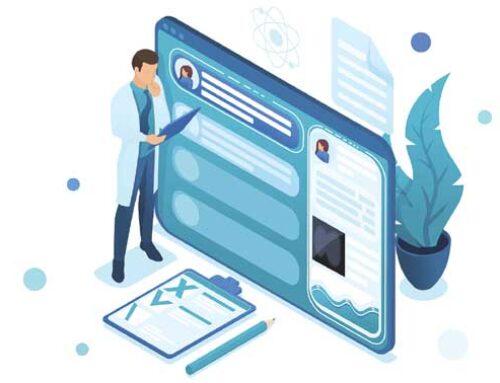 by Ann McNary, JD
by Ann McNary, JD
Ms. McNary is a Senior Risk Manager with PRMS, Inc.
Innov Clin Neurosci. 2016;13(5–6):81–82.
This ongoing column is dedicated to providing information to our readers on managing legal risks associated with medical practice. We invite questions from our readers. The answers are provided by PRMS, Inc. (www.prms.com), a manager of medical professional liability insurance programs with services that include risk management consultation, education and onsite risk management audits, and other resources to healthcare providers to help improve patient outcomes and reduce professional liability risk. The answers published in this column represent those of only one risk management consulting company. Other risk management consulting companies or insurance carriers may provide different advice, and readers should take this into consideration. The information in this column does not constitute legal advice. For legal advice, contact your personal attorney. Note: The information and recommendations in this article are applicable to physicians and other healthcare professionals so “clinician” is used to indicate all treatment team members.
QUESTION
I recently received a call from the office manager of one of my colleagues. He had suffered a stroke and they desperately needed someone to cover his patients, which I agreed to do. The situation really got me thinking. I’ve prepared financially for my sudden death or disability but frankly I haven’t thought about the same with regard to my medical practice. What is the best way to approach this?
Answer
Everyone plans to practice medicine until they decide to quit, but sadly it doesn’t always work that way. We frequently receive calls from family members, office staff, or even estate attorneys trying to figure out how to close down a practice and find care for patients following a psychiatrist’s death or incapacity. It’s a tragic situation made more so by the fact that the psychiatrist oftentimes has not provided any instructions, thus leaving it to the office staff or family members (who are dealing with their own worry and grief) to try to figure out what the psychiatrist would have wanted. Ironically, it is often the psychiatrist’s absolute commitment to patient confidentiality that makes this process even more difficult and puts patients at risk—he or she alone likely has access to passwords, schedules, and records, making it virtually impossible for appropriate parties to quickly obtain information, thus potentially endangering patient health.
In those situations, we do our best to advise the caller but our best advice is for you to plan now to ensure such a situation doesn’t happen to your staff, family, and patients. Think of it as an “advance directive” for your medical practice and let someone—be it your spouse, office manager, or another physician covering for you—know of its existence and where to find it.
Understandably, the thought of trying to write down everything someone would need to know in your absence is daunting so you may wish to consider the following:
Your Sudden Absence
If one day you suddenly failed to show up for work or left the office and didn’t return as expected, does your staff know…
• All of your contact information—cell phone number, home phone number, email, address of your home?
• Contact information for your spouse, significant other, children, or anyone else that might know of your whereabouts?
• Under what circumstances staff would be authorized to reach out to these individuals and how long they should wait to do so?
Immediate Action—Notifying Patients
Your patients will need to be notified as soon as possible after you become unavailable. While some patients may be informed as they call for or arrive to appointments, it is recommended that staff call all patients with previously scheduled appointments. Staff should also change the outgoing phone message to reflect the imminent closure of the practice and instructions as to how/when to obtain or transfer medical records, how to obtain refills, and what to do in an emergency.
In the event of your sudden death or incapacity, is there another person(s) who knows…
• Where to find a key to your office?
• Where to find your voicemail password?
• Where to find your computer password?
• How to access your appointment schedule?
• What you would want the patients to be told under what circumstances?
• What message should be left on your voicemail?
Immediate Action—Ensuring Continuity of Care
Solo practitioners should nurture professional relationships with colleagues in the community and educate staff or other responsible persons on managing referrals to covering psychiatrists, the community mental health facility, the patients’ health insurance providers, or the local emergency room if warranted. Covering psychiatrists—or the patient—may need access to a patient’s medical records. The goal is to ensure that records are available for patients’ continuing care while maintaining patient confidentiality. Obtaining refills to prescriptions will be of great concern to many of your patients. All states have rules, statutes, or regulations governing who may lawfully prescribe or renew prescriptions or medications.
In the event of your sudden incapacitation, it is imperative that office staff continue to act only within the scope of their own training and/or licensure. In the event of your sudden death or incapacity, do you have…
• Another psychiatrist(s) who could cover your patients—at least in the short term?
• Referral information—numbers for other psychiatrists, clinics, a crisis unit—that could be given to patients?
• Someone who knows how to physically or electronically access patient records?
• Instructions for how (and how not) to release records to the patient or others?
• An authorization form others can use to obtain patient consent to release information?
• Instructions to be given to patients on how to obtain prescription refills?
Closing Down Your Practice
Once the crisis period is over, your family and/or staff will still have a great deal to do. Of chief concern should be the appropriate treatment of your medical records. Even though your practice may be closed, that would not preclude a patient from suing you or your estate for medical malpractice or for an action to be taken should a confidentiality breach occur.
In the event that your practice needs to be closed permanently, would someone else know…
• What to do with your original medical records (e.g., where and for how long to store them)?
• What records may be destroyed, when, and how?
Your family will likely recognize the need to contact your landlord and vendors, such as your telephone and internet carrier, but there may be others to contact that may not appear obvious to someone who is not a medical professional. Among these might be your malpractice carrier, your licensing board, the United States Drug Enforcement Agency (DEA), third party payers, and electronic health record vendors. Additionally, patients who have not already been contacted should be sent a letter advising of your practice closure.
Conclusion
Once drafted, your plan should be regularly updated to reflect changes in your practice and the practices of the colleagues who have agreed to assist in an emergency. Remember to include contact information for others who may be able to assist your family and/or staff, such as your malpractice carrier and your business attorney. The plan need not be complex, but it must be documented and readily available to anyone who may need to implement it. Your patients, your staff, and your family will thank you for it.





